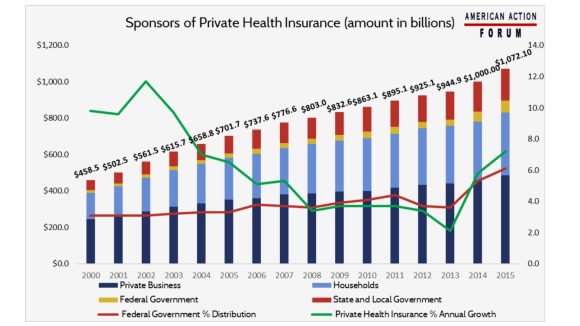
Best Health Insurance Plan for You
Best Health Insurance Plan for You: Navigating the world of health-insurance-can be complex and overwhelming. With so many options and variables to consider, finding the best health insurance plan for you can feel like a daunting task. Understanding the ins and outs of health insurance can help you make informed decisions and select a plan that meets your individual needs and budget. In this comprehensive guide, we will take you through the key factors to consider when choosing a health insurance plan, as well as provide tips and resources to help you find the best-coverage-for-you-and-your family.
Whether you are looking to purchase health insurance for the first time or are considering switching plans, it is important to carefully evaluate your needs and priorities. Factors such as cost, coverage, network, and benefits all play a critical role in determining the best plan for you. By taking the time to research and compare different options, you can ensure that you are selecting a plan that provides you with the coverage and peace of mind you need to stay healthy and financially secure.
This guide will walk you through the decision-making process and provide you with the tools and information you need to confidently choose the best health insurance plan for your specific circumstances.
Table of Contents:
| ☑️ Understanding Different Types of Health Insurance Plans ☑️ Evaluating Your Health Care Needs ☑️ Researching and Comparing Different Insurance Providers ☑️ Considering Costs and Benefits of Each Plan ☑️ Tips for Selecting the Best Health Insurance Plan for Your Needs ☑️ Best Health Insurance Plan for You |
Understanding Different Types of Health Insurance Plans
When it comes-to-choosing a Best health insurance-plan, it’s essential to understand the different-types-of plans available to you. Each plan has its own features, benefits, and limitations, so it’s important to carefully consider your personal needs and preferences before making a decision.
One of the most common types of health insurance plans is the Preferred Provider Organization (PPO) plan. With a PPO plan, you have the flexibility to choose your healthcare providers, both in-network and out-of-network. However, you will generally pay lower out-of-pocket costs when you see providers within the network. PPO plans often require you to pay a deductible and co-insurance for covered services.
Another popular option is the Health Maintenance Organization (HMO) plan. HMO plans typically have lower out-of-pocket costs than PPO plans, but they come with more restrictions on which providers you can see. With an HMO plan, you are generally required to choose a primary care physician (PCP) who will coordinate all of your care and refer you to specialists as needed. HMO plans also typically require you to get pre-authorization for certain services.
Also read : The General Insurance Quotes: Everything You Need to Know
Point of Service (POS) plans combine features of both PPO and HMO plans. With a POS plan, you have the option to choose providers within a network and see specialists without a referral from your PCP. However, you will pay higher out-of-pocket costs if you choose to see providers outside of the network.
High Deductible Health Plans (HDHPs) are becoming increasingly popular, particularly for individuals who are relatively healthy and don’t expect to need frequent medical care. HDHPs have lower monthly premiums but higher deductibles, meaning you will have to pay more out-of-pocket for healthcare services until you reach your deductible. HDHPs are often paired with Health Savings Accounts (HSAs) or Flexible Spending Accounts (FSAs) to help you save money for medical expenses.
Catastrophic health insurance plans are designed to provide coverage for major medical expenses, such as hospital stays and surgeries, while offering lower premiums and higher deductibles. These plans are meant for individuals who are generally healthy and don’t anticipate needing frequent medical care.
When evaluating different types of health insurance plans, it’s important to consider your individual healthcare needs, budget, and preferences. Think about factors such as the network of providers, out-of-pocket costs, coverage for prescription drugs, preventive care services, and mental health services. It may also be helpful to consult with a licensed insurance broker or healthcare navigator who can provide guidance and help you compare different plan options.
Ultimately, the best health insurance plan for you will depend on your unique circumstances and priorities. By taking the time to understand the different types of health insurance plans available and carefully evaluating your options, you can make an informed decision that meets your healthcare needs and financial goals.
Evaluating Your Health Care Needs
When it comes to selecting the best health insurance plan for your needs, one of the most important steps is evaluating your health care needs. Before you can determine what type of coverage is right for you, it’s crucial to take a closer look at your own health history, lifestyle, and future medical needs.
First and foremost, consider your current health status. Are you generally healthy with no ongoing medical conditions, or do you have chronic health issues that require regular medical attention? Understanding your current health situation will help you determine the level of coverage you may need. For example, if you are in good health and rarely need to see a doctor, a high-deductible plan with lower monthly premiums may be a more cost-effective option for you.
Also read : Exploring the Best Term Life Insurance Options
Next, consider any potential future medical needs. Are you planning to start a family in the near future? Do you have a family history of certain medical conditions that may require specialized care? Thinking about potential future scenarios can help you anticipate your health care needs and choose a plan that provides the appropriate coverage.
It’s also important to take into account any prescription medications you currently take or may need in the future. Some health insurance plans have restrictions or limitations on prescription drug coverage, so it’s essential to ensure that the plan you choose will provide adequate coverage for any medications you rely on for your health.
In addition to your own health needs, it’s also important to consider your lifestyle and healthcare preferences. For example, do you prefer to see a primary care physician for routine check-ups, or do you prefer to have access to a wider network of specialists? Do you have a preference for certain hospitals or healthcare providers? Understanding your personal preferences will help you narrow down your options and find a plan that matches your needs and preferences.
Finally, don’t forget to consider your budget when evaluating your health care needs. While it’s essential to prioritize quality coverage for your health needs, it’s also important to consider what you can afford in terms of monthly premiums, deductibles, and out-of-pocket costs. Balancing your healthcare needs with your financial constraints will help you find a plan that provides the right level of coverage without breaking the bank.
Evaluating your health care needs is a crucial first step in finding the best health insurance plan for you. By considering your current health status, potential future needs, prescription medications, lifestyle preferences, and budget, you can make an informed decision that meets your unique healthcare needs. Remember that everyone’s health care needs are different, so take the time to carefully assess your own situation before choosing a health insurance plan.
Researching and Comparing Different Insurance Providers
When it comes to finding the best health insurance plan for you, one of the most important steps is to thoroughly research and compare different insurance providers. This process can be overwhelming, but by taking the time to carefully evaluate your options, you can ensure that you find a plan that meets your specific needs and budget.
The first step in researching insurance providers is to gather information on the different plans available in your area. This can include contacting insurance companies directly, visiting their websites, or utilizing online comparison tools. It is important to take note of key details such as coverage options, premiums, deductibles, and out-of-pocket costs.
Once you have a list of potential insurance providers, it is crucial to dive deeper into their offerings. This can involve looking at the specific benefits and services covered by each plan, as well as any restrictions or limitations that may apply. For example, some plans may have more comprehensive coverage for certain medical services, while others may have stricter guidelines for pre-existing conditions.
Also read : The Importance of Business Liability Insurance
In addition to evaluating the specifics of each plan, it is also important to consider the reputation and reliability of the insurance provider itself. This can involve researching customer reviews, ratings, and feedback online, as well as checking with organizations such as the Better Business Bureau to ensure that the company has a good track record of customer service and satisfaction.
Another important factor to consider when comparing insurance providers is the network of healthcare providers and facilities that are covered by each plan. This can impact your access to quality care, as well as your out-of-pocket costs for services. It is essential to confirm that your preferred doctors, specialists, and hospitals are included in the network, or to determine if you are willing to switch providers if needed.
Finally, the cost of the Best insurance plan is a key consideration when comparing different providers. This includes not only the monthly premiums, but also any co-pays, deductibles, and coinsurance that may apply. It is important to weigh the costs against the benefits of the plan to ensure that you are getting the best value for your money.
Researching and comparing different insurance providers is an essential step in finding the best health insurance plan for you. By carefully evaluating the coverage options, benefits, network of providers, reputation, and cost of each plan, you can make an informed decision that meets your individual needs and budget. Remember to take the time to thoroughly research your options, ask questions, and seek guidance from insurance professionals as needed. By putting in the effort upfront, you can secure a health insurance plan that provides peace of mind and protection for you and your loved ones.
Considering Costs and Benefits of Each Plan
When considering which health insurance plan is the best fit for you, one of the most important factors to take into account is the costs and benefits of each plan. It’s crucial to assess not only the monthly premium, but also the out-of-pocket costs, coverage options, and potential benefits that each plan offers.
First and foremost, you’ll want to compare the monthly premium for each plan. This is the amount you’ll pay each month to maintain coverage. While a higher premium may seem like a financial burden, it often means that you’ll have lower out-of-pocket costs when you need medical care. On the other hand, a lower premium may save you money in the short-term, but could result in higher costs when it comes time to use your insurance.
Also read : Discover the Top 10 Most Affordable Car Insurance Companies
In addition to the monthly premium, you should also take a close look at the out-of-pocket costs associated with each plan. This includes deductibles, copayments, and coinsurance. A plan with a lower deductible may have a higher monthly premium, but could save you money if you frequently need medical care. Conversely, a plan with a higher deductible may be more affordable month-to-month, but could result in significant costs if you require extensive medical treatment.
When evaluating the benefits of each plan, consider the coverage options that are important to you. Do you have specific medications that you take regularly? Are you planning to start a family and need maternity coverage? Do you have a chronic condition that requires ongoing care? Make sure to review each plan’s coverage for prescription drugs, maternity care, mental health services, and any other services that are important to you.
It’s also important to look into the potential benefits that each plan offers. Some plans may include extras like dental and vision coverage, wellness programs, or telemedicine services. While these benefits may not be a deciding factor for everyone, they can provide added value and convenience for those who need them.
Lastly, don’t forget to consider any additional perks or incentives that each plan offers. Some insurance companies provide discounts for healthy behaviors, reimbursement for gym memberships, or rewards for completing wellness activities. These incentives can help you save money and stay motivated to prioritize your health.
Ultimately, the best health insurance plan for you will depend on your individual needs, budget, and health concerns. By thoroughly evaluating the costs and benefits of each plan, you can make an informed decision that provides you with the coverage and peace of mind you need. Remember to take the time to carefully review each option, ask questions, and seek guidance from a healthcare professional or insurance provider if needed. With careful consideration and research, you can find the best health insurance plan to suit your needs.
Tips for Selecting the Best Health Insurance Plan for Your Needs
When it comes to choosing the best health insurance plan for your needs, it is important to carefully consider a variety of different factors. The first step in this process is to assess your own health care needs and budget. Consider how often you visit the doctor, if you have any ongoing medical conditions or prescriptions, and what types of services are important to you. This will help you determine what level of coverage you need and what you can afford.
Next, you should familiarize yourself with the different types of health insurance plans available to you. There are various options, including Health Maintenance Organizations (HMOs), Preferred Provider Organizations (PPOs), Exclusive Provider Organizations (EPOs), and Point of Service (POS) plans. Each type of plan has its own benefits and limitations, so it is important to understand how they work and how they may impact your access to care.
Another important factor to consider when selecting a health insurance plan is the network of providers that are included. Some plans may require you to choose a primary care physician and seek referrals for specialist care, while others may allow you to see any provider within the network. Consider the doctors, hospitals, and other providers that are important to you, and make sure that they are included in the plan’s network.
Also read : The General Insurance Quotes: Everything You Need to Know
You should also carefully review the coverage options and cost-sharing provisions of each plan. This includes the monthly premiums, deductibles, copayments, and coinsurance amounts. Consider how much you are willing and able to pay out-of-pocket for medical care, and choose a plan that aligns with your budget. Keep in mind that plans with lower premiums may have higher out-of-pocket costs, while plans with higher premiums may offer more comprehensive coverage.
In addition to cost, it is important to consider the quality of the health insurance plan. Look for plans that are accredited by reputable organizations, such as the National Committee for Quality Assurance (NCQA) or the Accreditation Association for Ambulatory Health Care (AAAHC). You can also research the plan’s customer satisfaction ratings and complaints history to get a sense of how well it is regarded by its members.
Finally, don’t forget to consider any additional benefits or services that may be included in the health insurance plan. Some plans offer wellness programs, telemedicine services, or discounts on gym memberships and other health-related expenses. These extras can help you stay healthy and save money in the long run.
In conclusion, selecting the best health insurance plan for your needs requires careful consideration of your health care needs, budget, provider network, coverage options, quality, and additional benefits. By taking the time to research and compare different plans, you can find a plan that meets your needs and provides you with the peace of mind of knowing that you are protected in case of illness or injury.
In conclusion, finding the best health insurance plan for your needs requires careful consideration of various factors such as coverage options, costs, and provider networks. By following the steps outlined in this guide, you can make an informed decision that will ensure you have the coverage you need to protect your health and financial well-being. Remember that choosing the right health insurance plan is a critical decision that can have a significant impact on your overall health and well-being.
Take the time to research your options, compare plans, and seek guidance from a qualified insurance professional to find the plan that best meets your needs. By investing the time and effort necessary to find the best health insurance plan for you, you can rest assured knowing that you are taking proactive steps to safeguard your health and financial security.
| tags: Best Health Insurance,best health insurance,best affordable health insurance,best private health insurance,best medicare advantage plans,best medicare supplement plans,best individual health insurance,Best Health Insurance,best health insurance,best affordable health insurance,best private health insurance,best medicare advantage plans,best medicare supplement plans,best individual health insurance,Best Health Insurance,best health insurance,best affordable health insurance,best private health insurance,best medicare advantage plans,best medicare supplement plans,best individual health insurance,Best Health Insurance,best health insurance,best affordable health insurance,best private health insurance,best medicare advantage plans,best medicare supplement plans,best individual health insurance |












